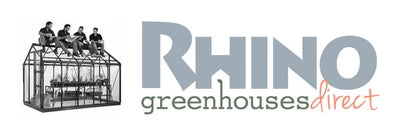The pine scent of a fresh Christmas tree can instantly bring feelings of festive spirit, and nothing quite compares to the charm of a real Christmas tree. If you're looking to make your Christmas tree stand out this year, you've come to the right place. In this guide, we'll share tips and advice to ensure your real Christmas tree remains lush, green and vibrant throughout the festive season. Whether it's your first real Christmas tree or you've had trouble keeping them looking their best in the past, we’re here to help you make the most of your Christmas tree this year.
Quick Links

Choosing the ideal time to buy your Christmas tree
To ensure your Christmas tree stays fresh and green it's important to choose the right time to bring it into your home. In the UK, you can generally find fresh Christmas trees at garden centres and tree farms from late November to early December. The key is to select a tree that's freshly cut, as this will have the best chance of retaining its needles and vitality.
How to find the perfect spot for your Christmas tree
The location of your Christmas tree plays a significant role in how well it holds up throughout the holiday season. Here are some tips for finding the perfect spot:
- Avoid direct heat sources: Keep your tree away from radiators, fireplaces and other heat sources that can cause it to dry out quickly – it can also be a fire hazard in front of naked flames!
- Keep it in indirect sunlight: Place your tree in a spot with indirect sunlight, as direct sunlight can also accelerate needle loss.
- Ensure good air circulation: Ensure adequate airflow around the tree to help maintain its freshness.
How to select the right pot size for your Christmas tree
Choosing the right pot size for your Christmas tree is crucial for stability and proper watering. You should aim for a pot that is at least six inches wider in diameter than the tree's trunk. This extra space will allow you to add water without any hassle and give the roots room to absorb it.
How often you should water your Christmas tree?
One of the most critical aspects of Christmas tree care is providing it with the right amount of water. A well-hydrated tree will stay green and vibrant. Here's how to do it:
- Initial watering: As soon as you bring your tree home, give it a good drink of water. Ensure the tree's base is submerged in water, and it should remain so throughout the holiday season.
- Daily check: Make a habit of checking the water level in the pot every day. A good rule of thumb is to ensure that there's always water covering the base of the tree trunk. It may need more water at first, but as the days go by, it should start to stabilise.
- Use a tree stand: A Christmas tree stand with a water tank stand can make watering your tree easier. These stands allow you to add water without disturbing the decorations or the tree's position.
How to deal with falling needles from your Christmas tree
It's normal for your Christmas tree to shed some needles over time, but you can minimise this by following our care tips. Here's what you need to know about needle loss:
- What’s normal: Some needle loss is natural, especially towards the end of the tree's life. However, with proper care, you can reduce excessive needle drop where you are left with clumps of your tree all over the floor.
- Vacuum regularly: Keep your living space tidy by vacuuming up any fallen needles every couple of days.
- Consider a water spritz: A light misting of water on the tree's branches can help reduce needle drop and keep the tree looking fresh.
- Choose a ‘non-drop’ Christmas tree: Some species of trees are known to be ‘non-drop’. The Nordmann Fir is a popular choice. The needles are soft yet generously full to provide a plump, filled-out tree.
Make the most of any fallen needles from your Christmas tree
Instead of viewing fallen needles as a nuisance, consider them a valuable resource for your garden. Here are a few ways you can make the most of those fallen needles:
- Mulch: Christmas tree needles make excellent mulch for your garden or greenhouse. They can help insulate the soil, reduce weed growth and add nutrients as they break down. Pine needles dry quickly and decompose slowly, which makes them an excellent moisture- and mould-free mulch for ground-covering harvests, such as strawberries.
- Compost: If you have a compost pile, add your Christmas tree needles to it. They're a great addition and can help balance the carbon-to-nitrogen ratio.
- Crafts and Potpourri: Get creative and use the fallen needles in crafts such as homemade Christmas cards. Or perhaps make some festive potpourri for your home or as a gift for loved ones.
By following these tips and guidelines, your real Christmas tree can be the centrepiece of your festive decorations, staying lush, green and vibrant throughout the festive season. Not only will it fill your home with the delightful scent of pine, but it will also bring the beauty of the outdoors into your living space.
For a successful and stress-free Christmas tree presentation, be sure to start with a freshly cut tree, find the perfect spot for it in your home, select an appropriate pot size, and provide the right amount of water. And don't forget to embrace the fallen needles by using them in your garden or for creative projects. With some care and attention, your Christmas tree will continue to shine brightly and keep the holiday spirit alive in your home.
For more gardening tips and inspiration, be sure to check out Rhino Greenhouses Direct and explore our gardening blog. Wishing you a wonderful and green Christmas season!




